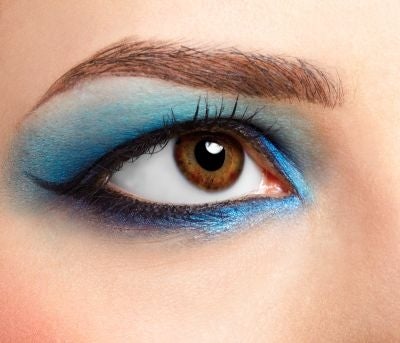Your support helps us to tell the story
From reproductive rights to climate change to Big Tech, The Independent is on the ground when the story is developing. Whether it's investigating the financials of Elon Musk's pro-Trump PAC or producing our latest documentary, 'The A Word', which shines a light on the American women fighting for reproductive rights, we know how important it is to parse out the facts from the messaging.
At such a critical moment in US history, we need reporters on the ground. Your donation allows us to keep sending journalists to speak to both sides of the story.
The Independent is trusted by Americans across the entire political spectrum. And unlike many other quality news outlets, we choose not to lock Americans out of our reporting and analysis with paywalls. We believe quality journalism should be available to everyone, paid for by those who can afford it.
Your support makes all the difference.Household goods, beauty and grooming product supplier Procter and Gamble (P&G), announced on August 12 the launch of new environmentally friendly packaging for its Pantene Pro V, Covergirl and Max Factor Brands.
The new environmentally friendly packaging is made from sugarcane-derived plastic, which is a renewable source unlike traditional plastic which is made from non renewable petroleum. Sugarcane -derived plastics are 100% recyclable in existing recycling facilities. The newly packaged products will be rolled out over the next two years with the first products expected to appear on the shelves in 2011.
Other beauty brands such as Lush, Stella McCartney and American company Cargo Cosmetics have also made strides towards sustainability, both within their packaging and products. Lush, which produces a wide range of handmade cosmetics sell 70 percent of their products without any packaging, and those that are sold with packaging contain around 89 percent recycled materials. Cargo Cosmetics also use minimal and environmentally friendly packaging, their Plant Love Lipstick, for example, comes in a lipstick tube made entirely from corn and retails for around €15 ($20).
Scientific research bodies have long condemned the harmful effects of plastics on the environment, a comprehensive report released in 2009 and compiled by scientists around the world found that 4 percent of the world's oil is used to make plastics, and chemicals such as phthalates released by plastic production can be found in the bodies of almost all adults and eight out of ten babies.
Only a small percentage of plastic products are recycled: the majority of plastics end up as rubbish. The 'Great Pacific Garbage Dump' is an area of plastic rubbish, estimated to be up to 500 miles across of floating plastics held in place by under ocean currents. Most of the plastic in the 'Great Pacific Garbage Dump' is thought to have been discarded from ships or dumped close to the seashore.
The development and widespread implementation of environmentally friendly packaging such as sugarcane-derived plastics could help to reduce both oil consumption and the release of pollutants such as phthalates associated with plastic production.
A spokesperson was not available to comment on whether P&G's new packaging would impact on the price of the product.

Join our commenting forum
Join thought-provoking conversations, follow other Independent readers and see their replies
Comments